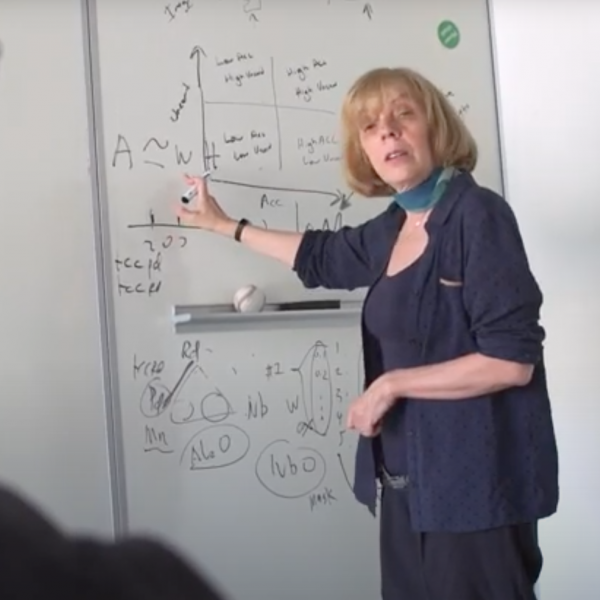Carla P. Gomes, the Ronald and Antonia Nielsen Professor of Computing and Information Science, is the recipient of the 2021 Feigenbaum Prize, given by the Association for the Advancement of Artificial Intelligence (AAAI).
The prize is awarded biennially to recognize and encourage outstanding AI research advances made by using experimental methods of computer science. The “laboratories” for the experimental work are real-world domains, where the power of the research results are demonstrated.
“I was thrilled when I learned that I was the recipient of this prize,” said Gomes, who has a joint appointment with the Ann S. Bowers College of Computing and Information Science and the Dyson School of Applied Economics and Management. “This award directly captures my research philosophy: advancing foundational AI and computer science through experimental work and meaningful and impactful applications.”
The Feigenbaum Prize – a $10,000 cash award provided by the Feigenbaum Nii Foundation and administered by AAAI – may be given for a sustained record of high-impact foundational contributions to experimental AI research, or to reward singular remarkable innovation and achievement in experimental AI research.
Gomes is being honored for:
- high-impact contributions to the field of artificial intelligence through innovations in constraint reasoning, optimization, the integration of reasoning and learning; and
- founding the field of computational sustainability with impactful AI applications in ecology, species conservation, environmental sustainability and materials discovery for clean energy.
Gomes, director of the Institute for Computational Sustainability at Cornell, has been deeply immersed in establishing and nurturing the new field. In September 2019, she published research explaining the concept, the key points being: Computer science enriches sustainability, and vice versa; and sustainability concerns human well-being and the protection of the planet.
Her work has been applied to areas such as bird conservation and the design of wildlife corridors; hydropower expansion in the Amazon River basin; and materials discovery for clean-energy materials.
“Computational sustainability strives to balance environmental, economic and societal needs,” she said. “Research on computational sustainability is a two-way street: On the one hand we inject AI, computational methods and computational thinking to address key sustainability challenges. And on the other hand, sustainability questions lead to truly inspiring AI advances. It’s been very exciting to see the computational sustainability community grow to hundreds of researchers worldwide.”
Gomes, who received her Ph.D. in artificial intelligence and operations research in 1993 from the University of Edinburgh, has fellowships with AAAI, the Association for Computing Machinery (ACM) and the American Association for the Advancement of Science.
She is an associate editor of the Artificial Intelligence Journal, one of the longest established AI journals, and also sits on the editorial board of the Transactions on Intelligent Systems and Technology, a more recent ACM journal.
The Feigenbaum Prize is named in honor of Edward Feigenbaum, the Kumagai Professor of Computer Science Emeritus at Stanford University and a pioneer in AI research as experimental computer science, and in the applications of AI research.
“With the recent acceleration of progress in AI,” Gomes said, “Professor Feigenbaum’s vision of truly impactful AI applications throughout society, in a broad range of domains – including sustainability, health care, scientific discovery and education – is coming to life. It is exciting to be part of this transformation.”
The Association for the Advancement of Artificial Intelligence is a nonprofit scientific society devoted to advancing the scientific understanding of the mechanisms underlying thought and intelligent behavior and their embodiment in machines.
This story, written by Tom Fleischman, originally appeared in the Cornell Chronicle on March 9, 2021.



